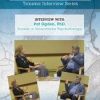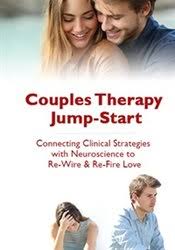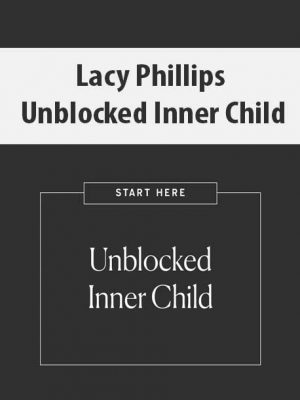Couples Therapy Jump-Start: Connecting Clinical Strategies with Neuroscience to Re-Wire & Re-Fire Love – Wade Luque
$200.00 Original price was: $200.00.$56.00Current price is: $56.00.
Fighting couples come to you for a quick fix. Are you ready to turn those frustrations into positive change?
Therapy is usually a couple’s choice after years of marital conflict, and their expectations can turn sessions into a challenge, leaving you and your clients feeling like the whole process is a failure.
Put yourself on the path to success when you enroll in Couples Therapy Jump-Start: Connecting Clinical Strategies with Neuroscience to Re-Wire & Re-Fire Love. You’ll gain a unique skillset to turn frustrations into positive change, help clients calm themselves, and foster listening without reacting – using techniques backed by neuroscience to help rewire the client’s brains.
Solutions take time, but when you have the right tools you can start a couple’s therapy session on the right path from day one.
- Articulate how the neuroscience of relationships informs clinical practice with couples.
- Communicate how breathing and visualization techniques can help calm clients and facilitate improved communication in couples.
- Establish how clinicians can utilize the couples dialogue process and the behavior change request process to help couples make changes in their relationship
- Characterize how methods for increasing empathy between couples can be used in therapy to increase attachment.
- Explore approaches clinicians can employ to reduce negative behaviors between couples while increasing caring behaviors.
- Specify the main components of an effective plan to maintain therapeutic gains after therapy ends.
A NEURODEVELOPMENTAL MODEL OF COUPLEHOOD
- The brain’s function in couple frustrations
- Child development and mate selection
- Finding and reclaiming our lost self through relationship
- Understanding and finding the imago match
CREATING SAFETY AND RECONNECTION
THROUGH COUPLES DIALOGUE
- Calming the brain to lessen reactivity
- Learning and teaching couples dialogue
- Practicing couples dialogue
- Organizing a first couples session
- Engaging men in couples therapy
- Gender, brain differences and communication
- Four skills to calm the brain to lessen reactivity
RE-FIRING EMPATHY AND PARTNER RECONNECTION
- The neuroscience of empathy
- Restarting the empathic process in distressed couples
- The parent/child dialogue
- The holding exercise
RE-WIRING FRUSTRATIONS FOR POSITIVE CHANGE
- Mind, body and trigger reactivity in partners
- Frustrations as desires stated negatively
- Turn desires into positive, doable behavior change request
- Frustrations as growth trying to happen
MAINTAINING THERAPEUTIC GAINS
- Loss of effect following a course of treatment
- Assigning an after-care plan
- How to set up booster sessions
- Change, new brain patterns and safety in the relationship
Get Couples Therapy Jump-Start: Connecting Clinical Strategies with Neuroscience to Re-Wire & Re-Fire Love – Wade Luque
1 review for Couples Therapy Jump-Start: Connecting Clinical Strategies with Neuroscience to Re-Wire & Re-Fire Love – Wade Luque
| 5 star | 100 | 100% |
| 4 star | 0% | |
| 3 star | 0% | |
| 2 star | 0% | |
| 1 star | 0% |
Sorry, no reviews match your current selections
Q & A
Ask a question
Your question will be answered by a store representative or other customers.
Thank you for the question!
Your question has been received and will be answered soon. Please do not submit the same question again.
Error
An error occurred when saving your question. Please report it to the website administrator. Additional information:
Add an answer
Thank you for the answer!
Your answer has been received and will be published soon. Please do not submit the same answer again.
Error
An error occurred when saving your answer. Please report it to the website administrator. Additional information:
Related products
Personal Development
Personal Development
Personal Development
Reuben Brooks – The Ultimate Transformation – Meal Plan & Training Program
Personal Development
Personal Development
Personal Development
Personal Development
Jess Lively – Magic Flow School – The Ultimate Course Bundle
Personal Development













WONDERFUL | Couples Therapy Jump-Start: Connecting Clinical Strategies with Neuroscience to Re-Wire & Re-Fire Love – Wade Luque